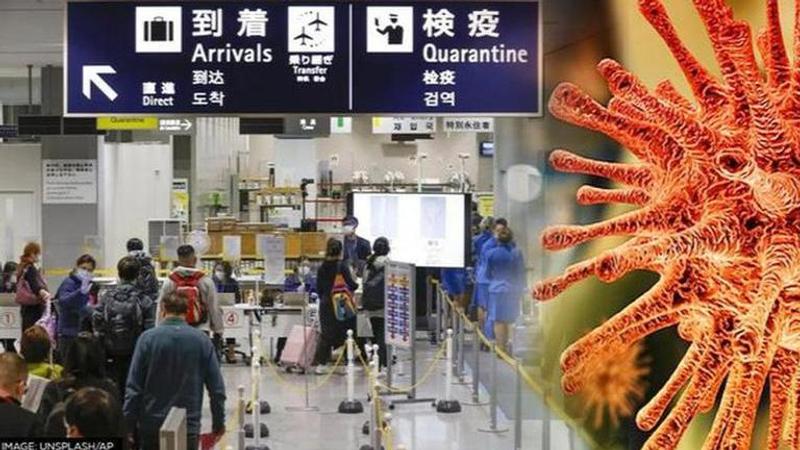Published 21:09 IST, December 1st 2021
Japan urges overseas airlines to cease new bookings amid concerns of Omicron variant
The transportation ministry, in a statement, announced on Wednesday that Japan has urged overseas airlines to cease accepting new reservations for all flights.

Advertisement
Japan's Transportation ministry, in a statement, announced on December 1 that the country has urged overseas airlines to cease accepting new reservations for all flights arriving in Japan until the end of December as the country tightens border procedures against the new COVID-19 variant. The request is being made as an emergency measure due to rising concerns about the spread of the new Omicron variant.
The announcement comes just one day after Japan verified a second incidence of the Omicron strain in a Peruvian national, one day after reporting the first occurrence in a Namibian diplomat. Those who have already booked flights will not be affected, but flights may be cancelled if there are insufficient passengers, according to the Ministry of Land, Infrastructure, Transport, and Tourism. Passengers on public transportation are also unaffected, according to the report. Flights to and from Asia use Japan as a significant transit hub.
Beginning Tuesday, all foreign visitors will be prohibited from entering Japan. The move, according to Prime Minister Fumio Kishida, is an emergency measure against the new variant, AP reported. The prohibition is expected to last until the end of the year. Japanese citizens arriving in the country would be quarantined for up to 14 days, according to the administration. People who had planned vacations during the holiday season, especially Japanese citizens living abroad expecting to come home for the New Year period, would most likely be disappointed by the decision.
Japan begins vaccine booster dose program
After infections had decreased dramatically since September, Japan had been reducing social and economic activity. However, according to early research, the global risk from the Omicron variant is extremely high, and it might lead to surges with serious effects, according to the World Health Organization. Meanwhile, in response to mounting concerns about the new strain, Japan began distributing coronavirus vaccine booster doses to healthcare workers on Wednesday. The first vaccination campaign in Japan began in mid-February, and some medical personnel who had shots more than nine months ago are now keen to seek further protection in case a fresh wave of diseases emerges.
At the Tokyo Medical Center, a group of nurses and doctors received booster vaccinations. Those who had their second dose eight months ago are eligible for a third shot to prevent infections from reoccurring. If illnesses resurface, eligibility may be reduced to six months, according to officials. Japan's vaccination programme started slowly but picked up in late May, and now roughly 77% of the population has been properly vaccinated — one of the key reasons for the country's gradual reduction of infections since September, according to specialists. Booster doses for the elderly, who received their first inoculations in April, are slated to start in January.
(With inputs from Agencies)
Image: AP/Unsplash
21:09 IST, December 1st 2021




